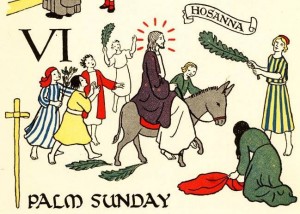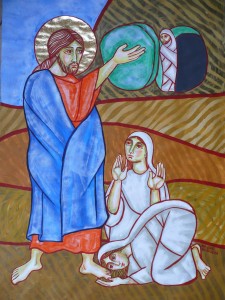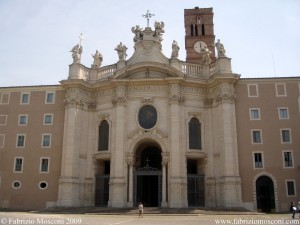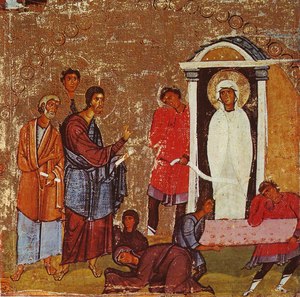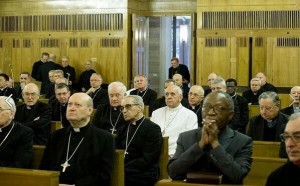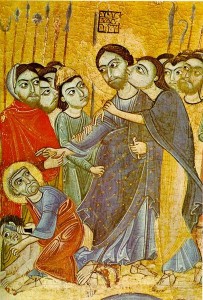 The day before Holy Thursday is known by Catholics as Spy Wednesday. It is a day of profound aloneness. In the biblical and liturgical narrative of the Paschal Mystery we recall that the Apostle Judas played an essential part in our redemption, that sin and betrayal are at the heart of the Christian mystery of salvation just as grace, love and forgiveness.
The day before Holy Thursday is known by Catholics as Spy Wednesday. It is a day of profound aloneness. In the biblical and liturgical narrative of the Paschal Mystery we recall that the Apostle Judas played an essential part in our redemption, that sin and betrayal are at the heart of the Christian mystery of salvation just as grace, love and forgiveness.
The Biblical and theological roots of our faith gives us a striking opportunity to discern, to re-evaluate, re-direct our life. We call this the journey of conversion; we have the sacraments of Confession and Eucharist; we also have the tools of spiritual direction to see where God is leading us, or where we have not lived according to Catholic faith. This ability to think again, to have a metonoia, is a supreme grace because all of us have something of Judas in us.
How many of us think we are doing the right thing when in the final analysis our actions were not. Judas’s betrayal of Jesus was in this category. The expectation Judas had hoped for was a Messiah who would liberate Israel from Roman rule thus creating a new Jerusalem, a new creation, a new people. We know he was wrong, and that the devil presents bad things as good. The devil prevailed upon the freewill of Judas but twisting reality in his deception. The Apostle Judas failed to understand, as likely did the others, that Jesus wasn’t interested in earthly power.
The other important aspect of Judas and Spy Wednesday is our awareness of how evil works in the world. It is a reality and not fake. Evil has a real grip on our lives and can redirect our focus from God unto ourselves or materialistic tendencies that ultimately reject God. Pope Benedict spoke of a lack of awareness regarding evil when he said in one of his teachings, “Today there is a certain callousness of the soul towards the power of evil, an insensitivity to all the evil in the world: we do not want to be disturbed by these things, we want to forget, perhaps, we think, it is not important. It is not only insensitivity to evil, but also insensitivity to God.”
Spy Wednesday is an important day in our approach salvation. Hence, it cannot be treated as frivolous or disregard of the betrayal it points to. It is said that Saint Catherine of Siena worried about Judas’s fate but was told by the Lord that mercy was possible even for him.
Sometimes I am surprised how quickly we rush to rule the world with justice. Or, I should say some form of justice that is so harsh and decisive. I wonder if we are aware that our manner of being just is not God’s. For example, man and woman often determine who is and who is not in hell. Ours is a sentimental mercy. It is a common assessment that Judas is in hell. But, is this a matter of our business? Perhaps we ought to take Saint Catherine’s testimony as true. Biblical revelation tells us that only God determines the content of one’s heart. The Church’s teaching is that the Lord gave the power discern who is in communion, or not, with God (“the power of the keys”). I recall the famous line from Cardinal Avery Dulles who said we know hell exists but not the population of hell.
Today, Spy Wednesday, let us pray for those who have betrayed or been betrayed. As difficult as this is, praying for our enemies is exactly what Jesus would do. Let us pray for God’s mercy on Judas. Today, go to confession.
 I know a priest who tells me that Good Friday is a day for us who to gaze upon the crucifixion as an attraction to self-consummation. Moreover, it is a day of panic at the threat of annihilation. The Cross of Jesus is a most power reality. It is not a decoration.
I know a priest who tells me that Good Friday is a day for us who to gaze upon the crucifixion as an attraction to self-consummation. Moreover, it is a day of panic at the threat of annihilation. The Cross of Jesus is a most power reality. It is not a decoration.

